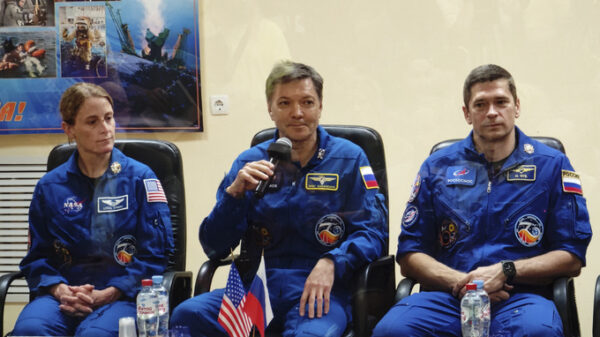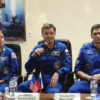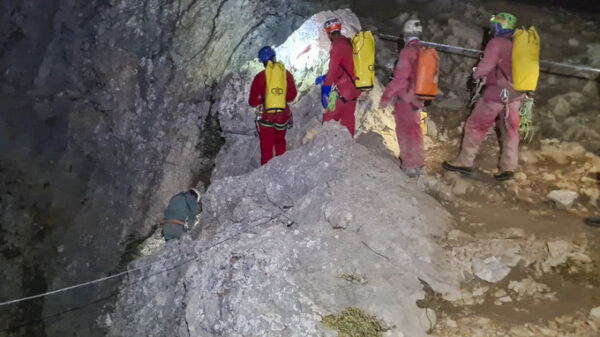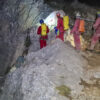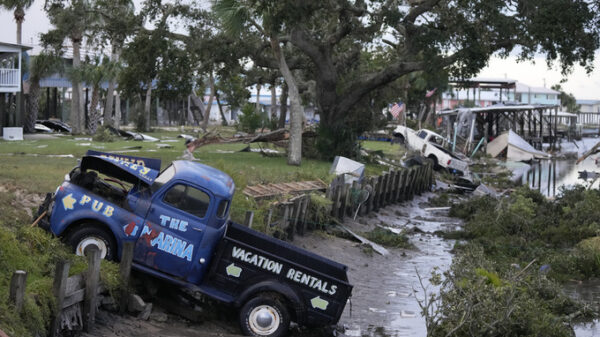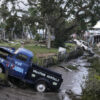In this photo provided by NASA, NASA’s Space Launch System (SLS) rocket with the Orion spacecraft aboard is seen atop the mobile launcher at Launch Pad 39B, Tuesday, Aug. 30, 2022, at NASA’s Kennedy Space Center in Cape Canaveral, Fla.. NASA’s Artemis I flight test is the first integrated test of the agency’s deep space exploration systems: (Joel Kowsky/NASA via AP)
CAPE CANAVERAL, Fla. (AP) — NASA will try again Saturday to launch its new moon rocket on a test flight, after engine trouble halted the first countdown this week.
Managers said Tuesday they are changing fueling procedures to deal with the issue. A bad sensor also could be to blame for Monday’s scrapped launch, they noted.
The 322-foot (98-meter) rocket — the most powerful ever built by NASA — remains on its pad at Kennedy Space Center with an empty crew capsule on top.
The Space Launch System rocket will attempt to send the capsule around the moon and back. No one will be aboard, just three test dummies. If successful, it will be the first capsule to fly to the moon since NASA’s Apollo program 50 years ago.
Proceeding toward a Saturday launch will provide additional insight, even if the problem reappears and the countdown is halted again, said NASA’s rocket program manager, John Honeycutt. That’s better “than us sitting around scratching our heads, was it good enough or not.”
“Based on what I’ve heard from the technical team today, what we need to do is continue to pore over the data and polish up our plan on putting the flight rationale together,” he said.
During Monday’s launch attempt, readings showed that one of the four main engines in the rocket’s core stage could not be chilled sufficiently prior to the planned ignition at liftoff. It appeared to be as much as 40 degrees Fahrenheit (5 degrees Celsius) warmer than the desired minus-420 degrees Fahrenheit (minus-250 degrees Celsius), the temperature of the hydrogen fuel, according to Honeycutt. The three other engines came up just a little short.
All of the engines appear to be fine, according to Honeycutt.
The chilling operation will be conducted a half-hour earlier for Saturday afternoon’s launch attempt, once fueling begins that morning. Honeycutt said the timing of this engine chilldown was earlier during successful testing last year, and so performing it sooner may do the trick.
Honeycutt also questioned the integrity of one engine sensor, saying it might have provided inaccurate data Monday. To change that sensor, he noted, would mean hauling the rocket back into the hangar, resulting in weeks of delay.
Already years behind schedule, the $4.1 billion test flight is the opening shot in NASA’s Artemis moon-exploration program, named after the twin sister of Apollo in Greek mythology. Astronauts could strap in as soon as 2024 for a lap around the moon and actually attempt a lunar landing in 2025.
The Associated Press Health and Science Department receives support from the Howard Hughes Medical Institute’s Department of Science Education. The AP is solely responsible for all content.
Copyright 2021 Associated Press. All rights reserved.






















